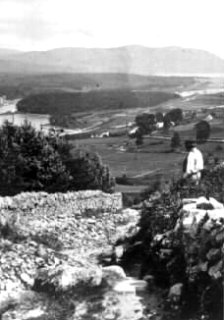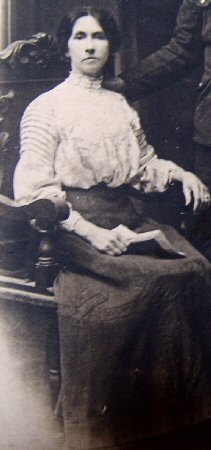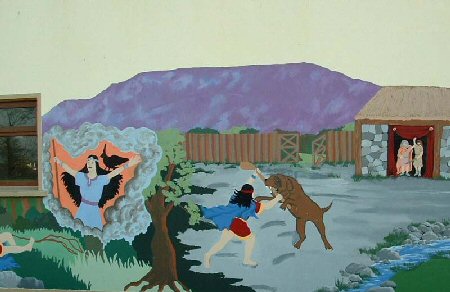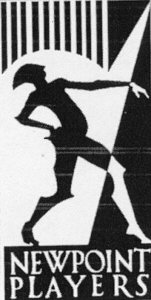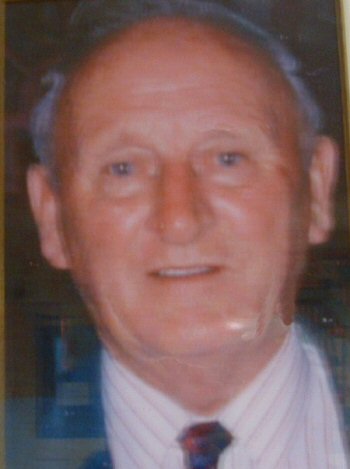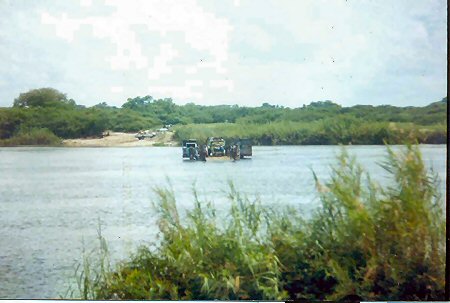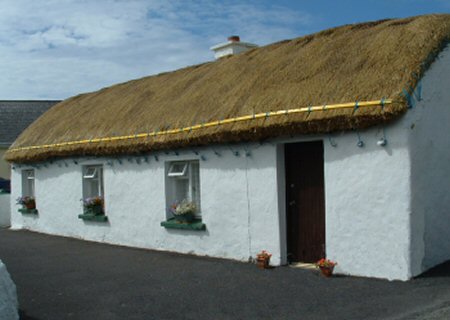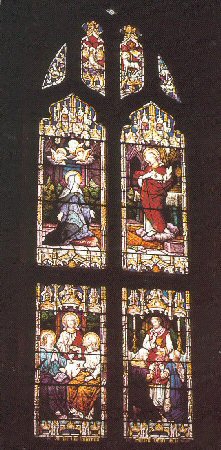‘Finn was out walking on the top of Slieve Gullion one time when he met a lovely young woman grieving by the lakeside. An’ he said,
‘What’s the bother?’ She pointed into the water.
‘Shure it’s me ring I’ve lost’. Then says he,
‘Don’t worry, I’ll git it if I can’.
An’ in he went but when he reached the bank again, shure he wus oul’ an’ grey. An’ his huntsmen came up an’ sorra a bit of them cud know him, he wus that changed! An’ the lady, she wus the Calliagh Berra, an’ she run away an’ what happened after that I do forgit.
Indeed it’s little I know of the same Calliagh Berra, but many a time when the mist wud be on the mountain above, I heared the oul’ people say till me mother,
‘The Cally has a male in her pot today.’
An’ indeed I often wondered what it might be she was boiling. Many a night I lay awake thinkin’ of it.
Shure it’s the great mountain. The whole world wus on top one day. Swarmin’ all over it they wur. It wus black with them iverywhere. They had tay on the mountain, but I got none. Them that comed from Dublin had all sorts of refreshments ay, oranges an’ iverything. You’d niver believe there wus such a gra’ for our oul’ mountain. Some had bags with sweetbreads in them an’ other things too. Some came be the chapel, an’ some be fut, an’ some be cars. An’ a whole lot come this way an’ more got out at Kinneys.
Me brother went up that day an’ he wus bad with the toothache besides being lame like me. But he cud go an’ he went. An’ he went till the lake for the cure.
‘Troth an’ I’ll go,’ says he, ‘should I die be the way’.
An’ when he returned, says he, ‘I’m cured an’ sound’.
‘Thank God,’ says me mother. A great sympathetic, dacent and charitable woman, the mother.
‘We’ll be done with yer gernin’, she says,
An’ mebbe the laziness will leave ye as well.’
